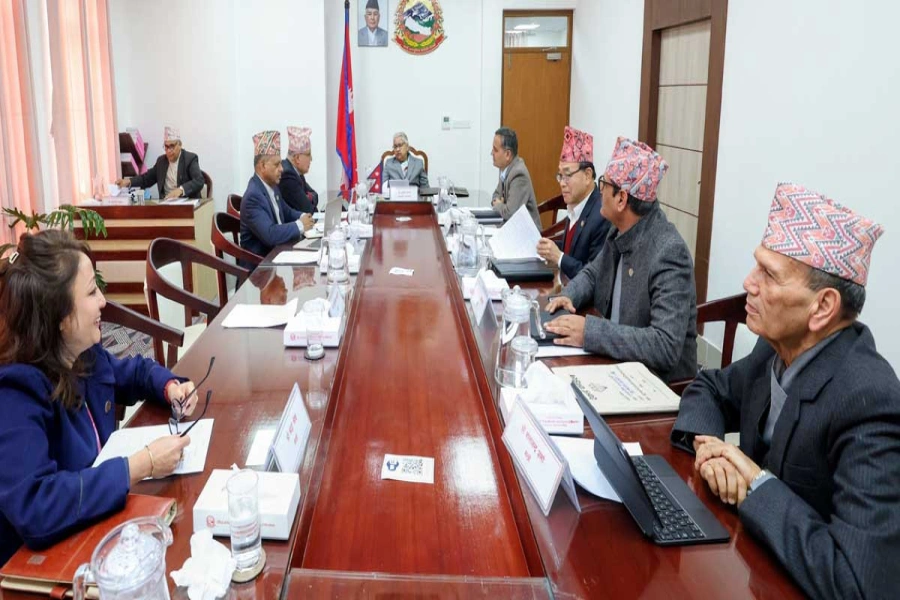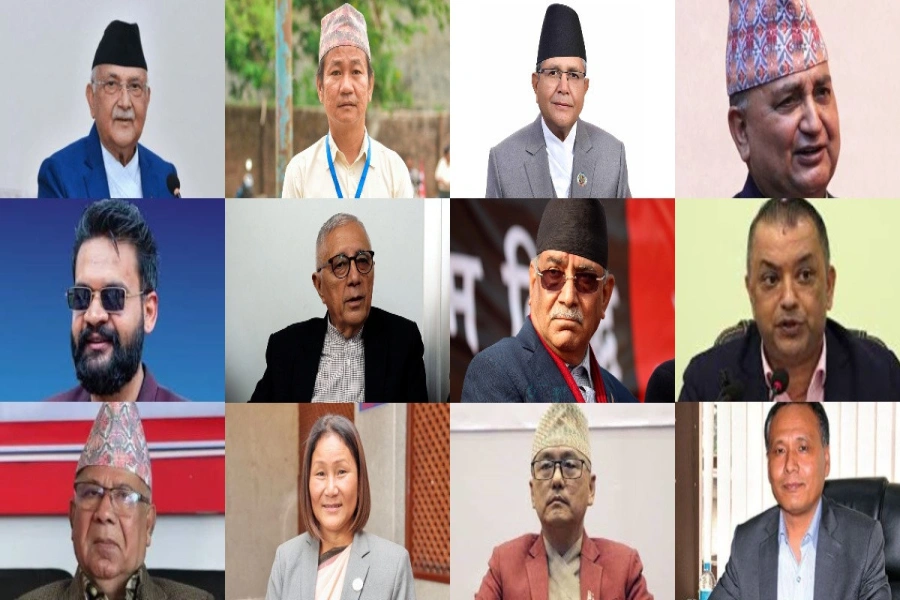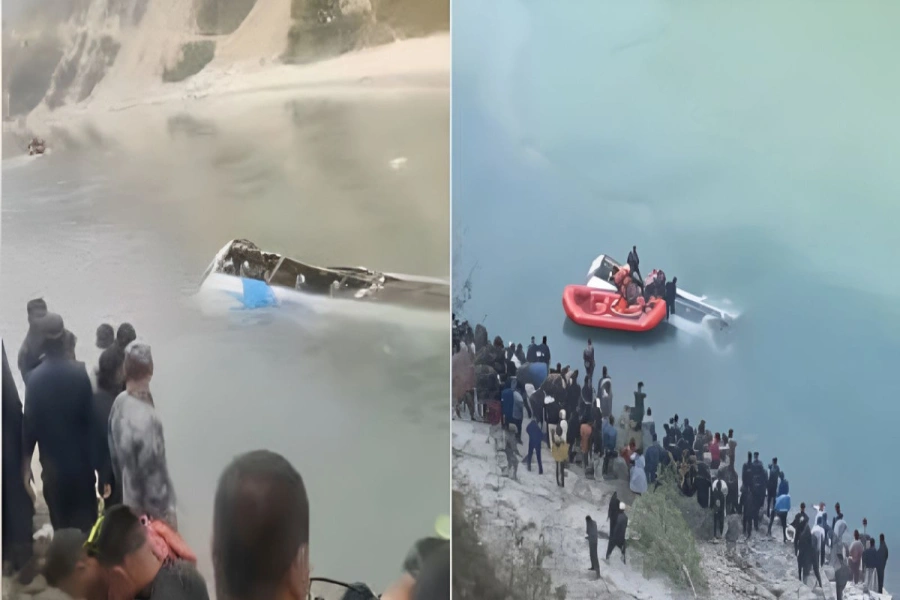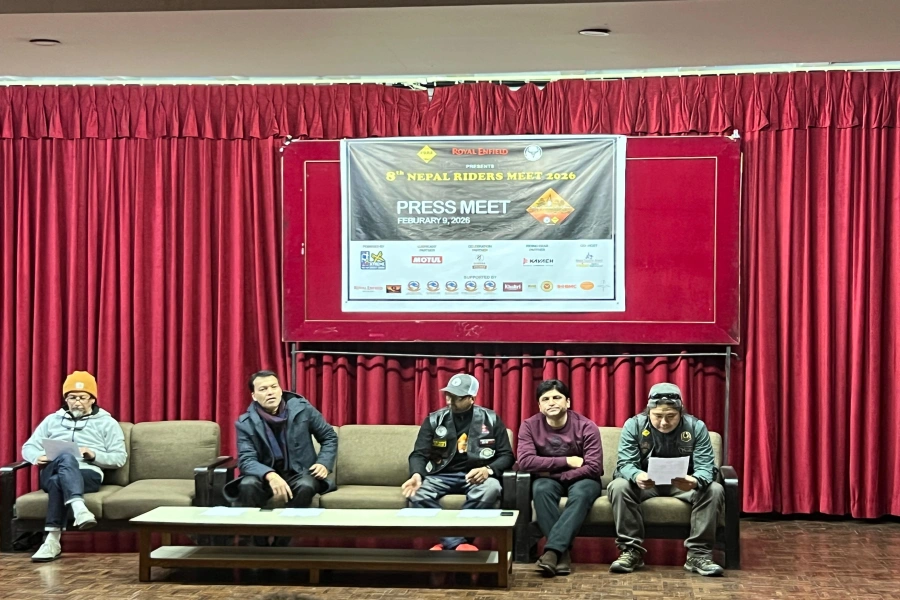KATHMANDU, March 29: The top leaders of the three major political parties, Nepali Congress (NC), CPN-UML, and CPN (Maoist Centre), made a commitment on the same platform to bring transitional justice to a conclusion and deliver justice to the victims. They expressed their unity in resolving transitional justice, despite political differences, rekindling hope among the victims.
Speaking at a conference titled ‘Transitional Justice Process: Ensuring the Right to Know for Victims of Armed Conflict, Justice, and Reparation, Along with National Conference of Sexual Violence Victims’ held in Kathmandu on Thursday, Prime Minister and CPN-UML Chairman KP Sharma Oli, NC President and former Prime Minister Sher Bahadur Deuba, and CPN (Maoist Centre) Chairman and former Prime Minister Pushpa Kamal Dahal reiterated their commitment to delivering justice to the victims, as in previous programs.
Despite being in government and opposition, the leaders claimed they had no differences in bringing transitional justice to an end and delivering justice to the victims.
There was also a question about who would take credit for concluding the peace process and transitional justice. Dahal, who was the commander of the then rebel Maoist party, claimed that he alone was a proponent of the peace process and insisted on delivering justice to the victims.
PM Oli said that he would not take credit for the peace process but would rather give it to others. NC President Deuba did not criticize anyone. The three leaders also claimed that the Enforced Disappearances Enquiry, Truth and Reconciliation Commission Act, 2071 was amended through consensus among all parties in the parliament, including the major three parties.
They seemed confident that the process would move forward as the recommendation committee for appointing officials of the transitional justice commissions had already been formed. They claimed that since the government had revived the five-member recommendation committee under the leadership of former Chief Justice Om Prakash Mishra, officials would soon be selected for both commissions.
Reviewing transitional justice

Prime Minister Oli mentioned that the law had been amended, and that the selection of officials for the two commissions related to transitional justice and the formation of the recommendation committee had been completed. He said that the previous recommendation committee had failed to recommend officials for the commission.
He asked, "In the past, Nepal experienced unnecessary and unjust violence. One thing remains questionable: why are we glorifying that violence, celebrating it, and having celebrations now? We came into the peace process saying that violence is wrong, and we want to conclude the peace process. We have seen how these activities have victimized people across the country," adding, “Thousands have suffered, cried, and died; many have been maimed, thousands have had to live as widows, and many children became orphans. It was a national mistake, a failure, and something that should not have happened. We must correct it.”
He added, “We must ensure that such things do not happen again in the future.”
Likewise, Prime Minister Oli emphasized that they themselves started and moved forward with the peace process. “Let’s leave aside taking credit. I just want to make this process successful, and I want to give the credit to everyone except myself. I’m not hungry for credit,” he said, “We have already left the path of violence, and it’s been 18 years. Let’s address the negative impacts of the conflict, wipe away the tears of the people, and move forward.”
Meanwhile, NC President Deuba said that the issue of transitional justice must be resolved internally. He emphasized that Nepal must set an example for the world by concluding the peace process. “Once transitional justice is concluded, Nepal will establish a new model for long-term peace in the world,” he said, “Some conflict-ridden countries may adopt our model.”
He expressed his confidence that the concerns of the conflict victims and human rights activists regarding the autonomy, credibility, and competence of the two commissions would be addressed. "I believe that the selection committee formed by the government will recommend competent and qualified people transparently, keeping the victim's rights at the center,” he said.
Likewise, Maoist Centre Chairman Dahal claimed that the peace process had advanced in a fundamental way. He mentioned that initially, there was a discussion about granting ‘general amnesty’ for serious human rights violations during the armed conflict, but he rejected that idea. “Only by taking these serious violations to court can victims feel justice. No blanket amnesty,” he said.
Dahal acknowledged that transitional justice had been delayed due to technical, legal, and political issues. “Our peace process is unique. This is a complex and sensitive matter, and we must complete it successfully,” he said.
Senior legal advisor to the ICJ, Mandira Sharma, said they were discussing how to provide reparations to victims of rape and sexual violence during the conflict. She advised the government to commit to the implementation of transitional justice laws. “There should be no compromise on implementing the law,” she said.
She mentioned that while the law covers many aspects, some parts do not align with international law. She stressed that the government must be victim-centric in transitional justice.
Suman Adhikari, a leader and activist for conflict victims, expressed hope that the leaders would align their words and actions. He criticized the political parties for dividing the recommendation committee on ‘quota’ and suggested that it should consist of three leaders instead. He called for the committee to start the process from the beginning. He also pointed out that the law’s provision requiring sexual violence victims to file cases within three months was inappropriate. "We must create an environment where all victims can come forward. Victims should not be left behind in the name of truth and justice," he told the leaders.
Similarly, Sumitra Chaudhary, representing the women victims of the conflict, shared information about the health problems faced by victims of sexual violence. She stated that victims had expressed concerns about the short deadline for filing complaints. She stressed that attention should be paid to maintaining the confidentiality of rape victims and ensuring justice and reparations for them.
International Commission of Jurists (ICJ) Secretary-General Santiago Canton and UN Representative Hana Singer-Hamdy provided insights into international experiences of transitional justice and international law. They expressed their close monitoring of Nepal's situation and committed to fully support the process, encouraging a quick resolution.
The conference, organized jointly by the ICJ, National Network of Women Victims of Conflict, National Forum of Conflict Victims, Accountability Monitoring Committee, and Amnesty International, discussed Nepal’s unique approach to concluding the remaining parts of the peace process.



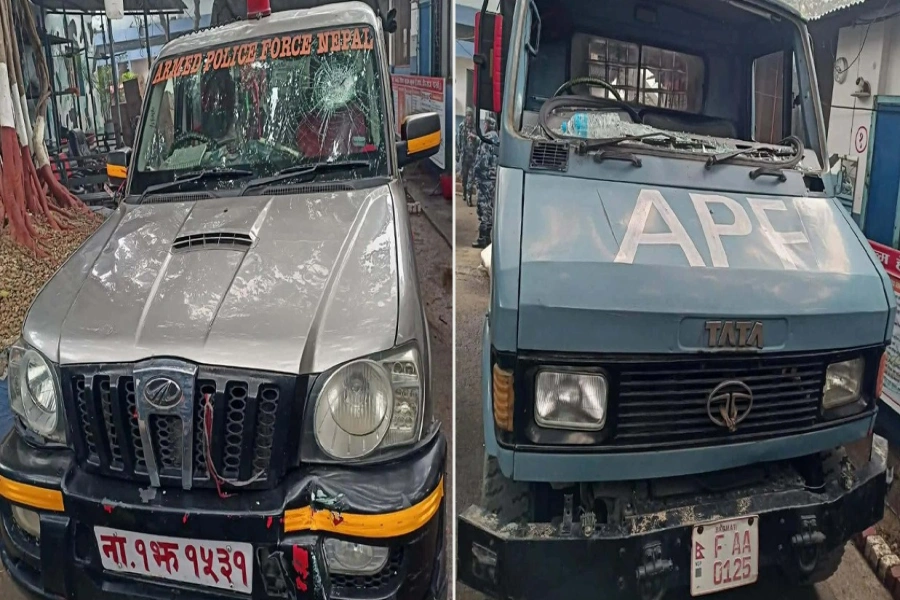



-1770648553.webp)







